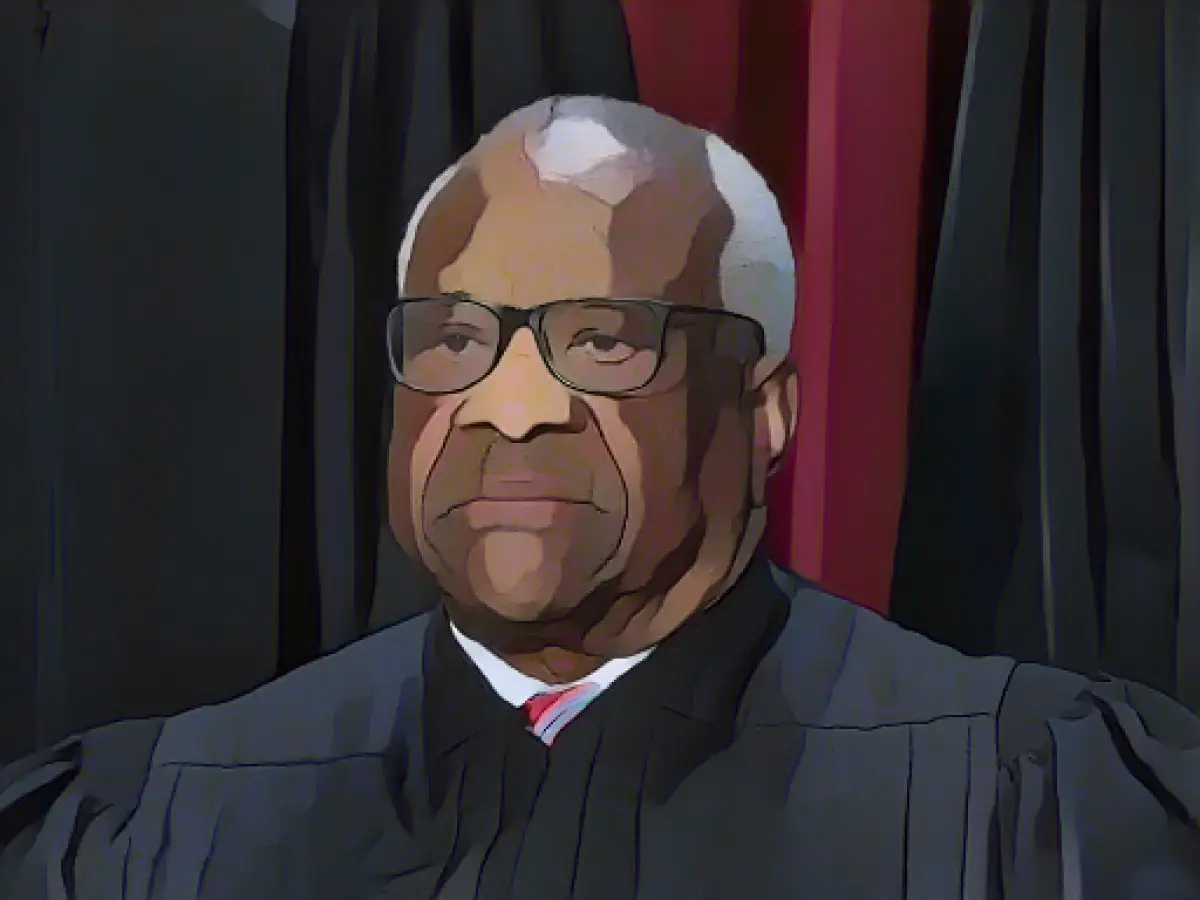Supremes Get a Code of Conduct, But Enforcement Remains Unclear
In a first for American history, the esteemed members of the Supreme Court have agreed to a code of conduct. The Supreme Court announced this development in a recent statement, outlining when justices should step aside from certain cases due to potential conflicts of interest, such as financial ties or personal bias.
However, several uncertainties linger, including who will implement and enforce these new guidelines, as well as the repercussions for defying them. The chief justices acknowledge that additional resources may be needed to address these complexities.
An Ethical Rumble
The controversy stemmed from reports of costly gifts from prominent Texan real estate tycoon Harlan Crow to Supreme Court Justice Clarence Thomas. As a result, both Thomas and his fellow justices found themselves under scrutiny in a broader ethics debate. Although other federal judges in the US have a code of conduct, there was no similar set of regulations for the nation's highest court until now.
The document containing the code of conduct emphasized that while the principles outlined were not entirely novel, the lack of a clear line for ethical boundaries had led to misconceptions that the Supreme Court was not bound by any such rules.
Gifts, Politics, and a Conservative Stalwart
According to a report from investigative journalists at ProPublica, Crow had lavished Thomas with a range of luxuries, including a trip to Indonesia aboard his luxurious yacht and flights aboard Crow's private jet. Thomas defended these gifts by stating that he had been advised against take scheduled air travel due to security concerns resulting from his opposition to abortion rights and the subsequent backlash from violent leftist groups.
Justice Thomas, a staunch conservative and frequent vote in favor of strongly conservative viewpoints on the Supreme Court, earned a reputation for his consistent support for various sociopolitical causes.
New Guidelines for Recusal
Under the new guidelines, Supreme Court justices must recuse themselves from cases whenever conflicts of interest or personal biases are detected. The code of conduct, long overdue for the Supreme Court, serves to clarify any ambiguity surrounding ethical standards and uphold the principles of justice in Washington.
Source:
The Current Landscape
- Voluntary Compliance:
- While the new code of conduct enforces guidelines for recusal, compliance is still largely voluntary for the Supreme Court justices.
- Lack of Enforcement Mechanism:
- In the absence of a binding arbiter or enforcer, the enforcement of this code of conduct remains questionable, sparking debates and scrutiny.
- Calls for Reform:
- Legal organizations such as the American Bar Association and the New York City Bar Association urge the establishment of a binding and enforceable ethics code with a sturdy enforcement mechanism.
- Independent Enforcement Mechanism:
- Proposed solutions include creating an independent ethics body to monitor and enforce ethical standards, as internal self-regulation systems often suffer from potential conflicts of interest and retaliation concerns.
The new code of conduct, while introducing necessary guidelines for recusal in the face of potential conflicts of interest, falls short in addressing the concerns over compliance and enforcement. These challenges have attracted widespread criticism and calls for change to restore public trust and confidence in the Supreme Court.








